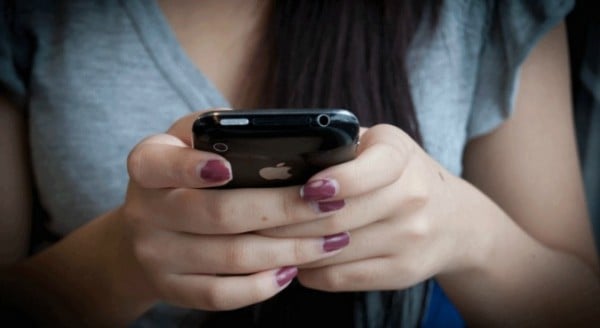
Image via HBO
We can all agree that the smartphone is a brilliant invention that makes life easier, more efficient, and more photogenic (thanks, Instagram!).
Most of us spend a lot of time with our phones. We take them absolutely everywhere and fiddle with them constantly. Need an easy last minute dinner recipe? You’ll consult a cooking app. Desperate to settle a pub argument over whether or not dolphins have hair? Your hand will involuntarily reach for the nearest wifi-connected phone.
All that typing and swiping seems relatively harmless, and most of the time it probably is. However, there’s a good chance your phone is having some really creepy affects on your health, wellbeing and appearance without you even realising.
Here are six parts of your body that your beloved device might be messing with:
1. Your face
We spend a lot of time looking down at our phones, and that’s not necessarily good news for our faces.
Cosmetic surgeons and other aesthetics experts have previously speculated that sitting with the head bent slightly forward for long periods of time could contribute to drooping jawlines, lines around the mouth and double chins, by shortening the neck muscles and pulling down on the jowl area. It’s even got a name: Smartphone Face.
Furthermore, in 2012 US cosmetic surgeons observed a boom in ‘chinplants’. According to reports, many people were opting for this procedure after noticing sagging around the lower half of their face while using video apps on their handheld devices. If you’ve ever accidentally switched on your camera while looking down at your iPhone, you’ll probably understand their horror – no human face looks taut from that angle.
